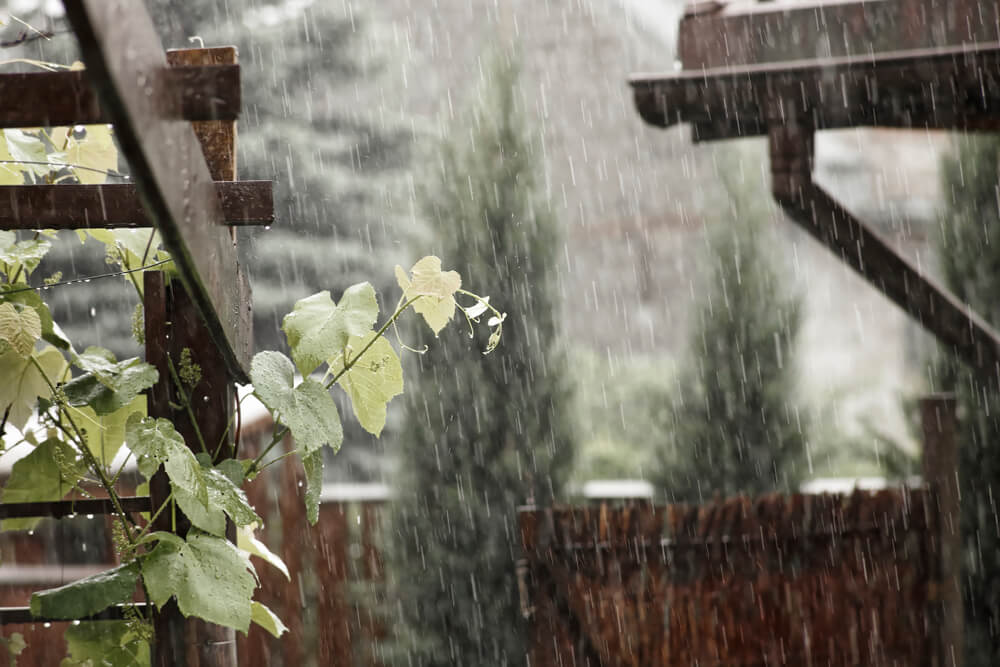Is It Possible to Have a Hurricane-Proof Pergola?

Extreme weather conditions are becoming increasingly common, and as a result, homeowners in coastal and storm-prone regions are seeking more robust outdoor shelter solutions. This raises the question: Can a pergola withstand a hurricane? The answer isn’t straightforward, as there are many contributing factors to a pergola’s strength. However, a better understanding of materials, engineering, and correct installation procedures will improve your chances of creating a hurricane-proof structure.
What Does “Hurricane Proof Pergola” Actually Mean?
The forces of nature are entirely unpredictable, with category 4 to 5 storms producing wind speeds over 160 miles per hour. As such, there is no such thing as a guaranteed hurricane proof pergola; however, a well-designed and properly installed unit can be confidently called a hurricane resistant pergola.
A hurricane rated pergola is typically tested to withstand gusts of up to 130 miles per hour when professionally installed. It is essential to understand that “hurricane proof” actually means a structure is engineered to provide maximum resistance, but is not indestructible.
How Much Wind Can a Pergola Withstand?
Standard pergolas should be able to withstand winds of up to 80 miles per hour, but the best pergola for high winds, engineered using the correct materials and properly anchored, should be able to handle gusts of 100 to 130 miles per hour. It’s essential to select a pergola with a tested wind rating and appropriate manufacturer documentation, particularly if you reside in an area where building codes require it.
Best Pergola Materials for High Winds
It is essential to consider materials that are durable, flexible, and, above all, strong when discussing how to build a hurricane proof pergola.
- Powder-coated aluminum resists corrosion and UV damage.
- Engineered frame designs effectively distribute wind loads.
- Lightweight yet strong, aluminum pergolas flex under pressure without breaking.
For these reasons, aluminum is the gold standard for building a high wind resistant pergola, as it won’t crack under stress like wood or become brittle, unlike vinyl, which can weaken over time.
Louvered vs Fixed Roof Pergolas in Storms
Adjustable louvered pergolas offer a distinct advantage in making your pergola wind resistant. Open louvers allow for airflow through the structure, reducing pressure on the pergola’s frame. Some advanced models incorporate wind sensors that automatically adjust the louvers to accommodate heavy winds.
Conversely, fixed-roof pergolas are more rigid, which can actually negatively affect a pergola’s strength in the event of a storm. These will often bear the full force of the wind, leading to structural damage.
Site-Specific Engineering & Installation
When making a pergola hurricane proof, correct installation is paramount. This is where site-specific engineering comes into play:
- Soil testing ensures the optimal footing depth and anchoring for a hurricane proof pergola.
- Bolt size and embedment determine the correct amount of load resistance.
- Attached pergolas that are anchored to a structure usually perform better than freestanding designs in high winds.
- Professional installation guarantees compliance with local codes and proper assembly.
Preparing for Hurricane Season
Follow these simple steps to ensure your wind resistant pergola is well-prepared for storm season:
- Regularly inspect all bolts and anchors.
- Reapply protective coatings as necessary.
- Remove or secure outdoor furniture.
- Store any loose cushions or covers indoors to prevent damage.
- Use hurricane straps or temporary bracing if advised.
Can a pergola survive a Category 4 storm?
If it’s hurricane-rated and securely anchored, it is possible for a windproof pergola to survive a Category 4 storm, but expect potential damage. No pergola is guaranteed to withstand winds of 130 mph or more unscathed.
What is the best pergola for areas prone to hurricanes?
Aluminum, louvered pergolas with certified wind ratings and a professional installation offer the best protection in hurricane-prone areas.
How do I know if my pergola meets code?
Ask your contractor for documentation showing your pergola wind rating and engineering certifications to ensure that your structure meets local building regulations.
Secure Your Pergola with Rollac
While there is no such thing as a completely hurricane proof pergola, the best pergola for high winds utilizes a combination of the right materials, a wind-resistant design, engineering, and regular maintenance to ensure peace of mind and optimal performance. If you live in a storm-prone area, consider a hurricane-rated pergola and consult with a professional to ensure it meets local building codes and regulations.
Are you ready to make your outdoor space wind-proof? Contact Rollac today to discuss your hurricane proof pergola requirements.
